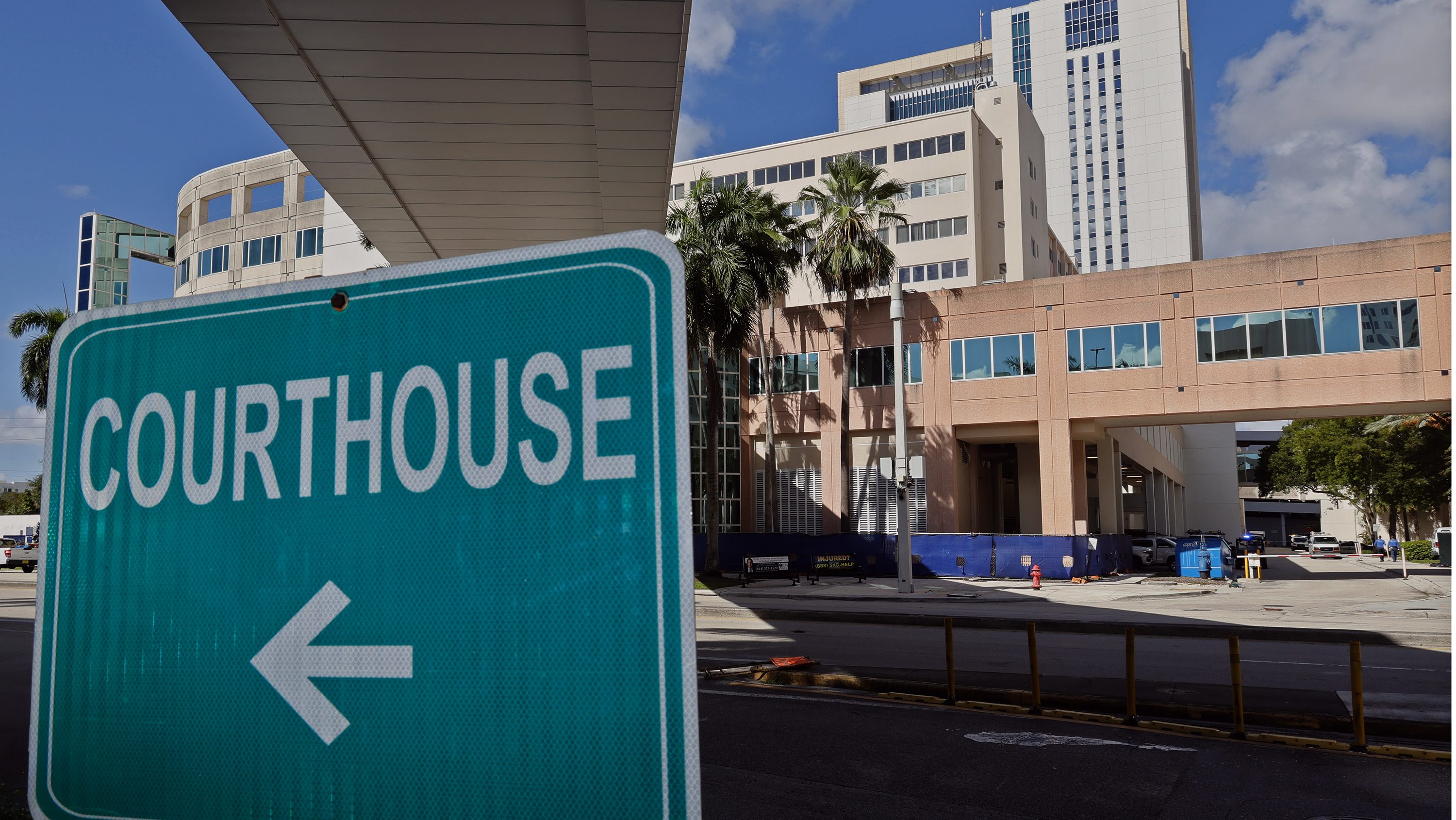
Ukrainian President Volodymyr Zelenskyy said Tuesday that Russia is “weaponizing” everything from food and energy to abducted children in its war against Ukraine — and he warned world leaders that the same could happen to them.
“When hatred is weaponized against one nation, it never stops there," he said at the U.N. General Assembly’s annual top-level meeting. “The goal of the present war against Ukraine is to turn our land, our people, our lives, our resources into weapons against you — against the international rules-based order.”
Watch NBC6 free wherever you are
He pointed to the war's effect on fuel and food supplies. And he highlighted what Ukraine says were at least tens of thousands of children taken from their families after Moscow's invasion: “What will happen to them?”
"Those children in Russia are taught to hate Ukraine, and all ties with their families are broken. And this is clearly a genocide,” Zelenskyy said.
Get local news you need to know to start your day with NBC 6's News Headlines newsletter.
The International Criminal Court issued an arrest warrant in March for Russian President Vladimir Putin and another official, accusing them of abducting children from Ukraine. Russian officials have denied any forced transfers of children, saying some Ukrainian children are in foster care.
Russia gets its chance to address the General Assembly on Saturday, when Foreign Minister Minister Sergey Lavrov is expected on the rostrum. Deputy U.N. Ambassador Dmitry Polyansky sat in Russia’s seat during Zelenskyy’s speech.
Zelenskyy took to the world stage at a sensitive point in his country’s campaign to maintain international support for its fight. Nearly 19 months after Moscow launched a full-scale invasion, Ukrainian forces are three months into a counteroffensive that has not gone as fast or as well as initially hoped.
U.S. & World
Ukraine and its allies cast the country’s cause as a battle for the rule of international law, for the sovereignty of every country with a powerful and potentially expansionist neighbor, and for the stability of global supplies that have been rocked by the war. The commodity upheaval has triggered inflation and caused serious hardships for poor countries.
“We must stand up to this naked aggression today and deter other would-be aggressors tomorrow,” U.S. President Joe Biden told the assembly Tuesday in his own speech. As he pledged support to Ukraine, there was a round of applause, and the U.N. cameras showed Zelenskyy, sitting in Ukraine’s seat in the General Assembly, clapping his hands.
Russia insists its war is justified, claiming that it is defending Russian speakers in Ukraine from a hostile government and Russian interests against NATO encroachment, and more.
The war has raged longer and losses have been greater than Russia hoped, and the fighting has spurred widespread international condemnation and sanctions against Moscow.
But the Kremlin also has influential friends that haven’t joined the chorus of censure: China and India, for instance, have staked out neutral positions. So have many Middle Eastern and African nations. Many Latin American and Caribbean countries prefer to focus world attention on other global issues, including climate change and conflict in Africa.
Moscow is keen to display its global influence and its relationship with China and insists that it cannot be internationally isolated by the U.S. and its European allies.
Meanwhile, Ukraine is concerned that backing from its allies may be ebbing. They have supplied billions of dollars’ worth of arms but fear that their stockpiles are shrinking and that defense contractors are struggling to boost production lines.
Hours before Zelenskyy spoke at the U.N., allied defense leaders convened at a U.S. military base in Germany to discuss next steps.
Some nations pledged further money and weapons. But a key sticking point is whether to supply longer-range missiles that Kyiv insists it needs in order to hit Russian troops and facilities from a safe distance — as far as about 180 miles (300 kilometers) away. The U.S. is wary of the request, worried that Ukraine could use such weapons to strike deep into Russian territory and provoke Moscow.
The U.S. Congress is currently weighing Biden’s request to provide as much as $24 billion more in military and humanitarian aid to Ukraine, amid a growing partisan divide over spending on the conflict. Zelenskyy is scheduled to spend time Thursday on Capitol Hill and to meet with Biden at the White House.
After landing Monday in New York, Zelenskyy suggested that the U.N. needs to answer for allowing his country's invader a seat at the tables of power.
"For us, it’s very important that all our words, all our messages, will be heard by our partners. And if in the United Nations still — it’s a pity, but still — there is a place for Russian terrorists, the question is not to me. I think it’s a question to all the members of the United Nations,” Zelenskyy said after visiting wounded Ukrainian service members at Staten Island University Hospital.
Russia is a permanent, veto-wielding member of the U.N. Security Council, which is entrusted with maintaining international peace and security.
Zelenskyy has taken the United Nations to task before. In one memorable example, he lamented at the General Assembly in 2021 that the U.N. was ”a retired superhero who's long forgotten how great they once were."
A former comedian and actor who took office in 2019, Zelenskyy later became a wartime leader, wearing military fatigues, rallying citizens at home and appearing virtually and in person before numerous international bodies.
During his time at the Staten Island hospital, he awarded medals to military members who had lost limbs. With help from a New Jersey-based charity called Kind Deeds, 18 troops have been fitted for prostheses and are undergoing outpatient physical therapy at the hospital, according to its leaders.
“We all will be waiting for you back home,” Zelenskyy told those he met. “We absolutely need every one of you.”
___
Gatopoulos reported from Athens.



